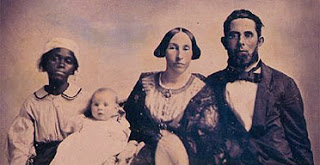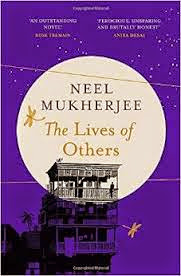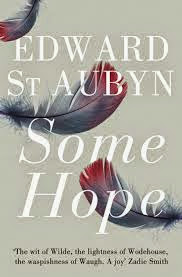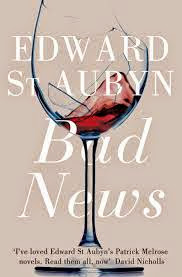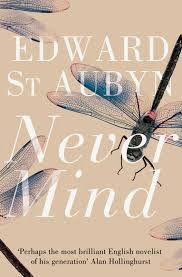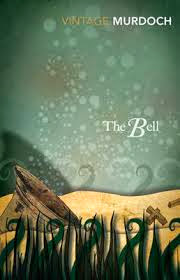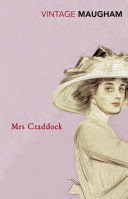
Maugham’s OF HUMAN BONDAGE is life changingly wonderful (or at least I thought so in my twenties), so I had high hopes for MRS CRADDOCK. It’s neither life changing nor wonderful, but it’s still to be recommended. It tells the story of a wealthy young lady called Bertha, who falls madly in love with one of tenant farmers on her estate, and marries him in face of huge opposition. Appallingly, for her, everyone comes around to loving him, just as she falls out of love with him.
For a novel of this period, the book is shockingly frank about physical desire. I was not surprised to learn it had to be published with excisions at first. Bertha is obssessed with his ‘manly hands’ and his ‘big mouth’, and entirely overlooks his tiny brain in consequence. It is not however his stupidity that wears her down, but rather his placidity. Bertha is a wildly passionate woman, and her husband is not. Thus he never gives her ‘enough’ love, and this is the central issue of their marriage. She tries to leave him, and almost runs away with an eighteen year old, but in the end simply finds a way to live with him, rather unhappily. One day she comes down overdressed to dinner, and encapsulates the central issue of the novel with this comment, said under her breath: “That is my whole life . .. to eat cold mutton and mashed potatoes in a ball dress and all my diamonds.”
It’s a pretty sad story, but Maugham is always a funny writer. Here he is on a dull and pretentious dinner party: “It is an axiom of narration that truth should coincide with probability, and the realist is perpetually hampered by the wild exaggeration of the actual facts. A verbatim report of the conversations at Mrs Branderton’s dinner party would read like shrieking caricature.” This I find to be very true – it’s amazing how often what happens in real life would appear fantastical if in fiction.
I also quite enjoyed this little snippet: “Sometimes in the twilight of winter afternoons, when the mind was naturally led to a contemplation of the vanity of existence and futility of all human endeavour, she would be seized with melancholy.” I don’t know why but I found this both funny and sad, much like this odd little novel over all.

